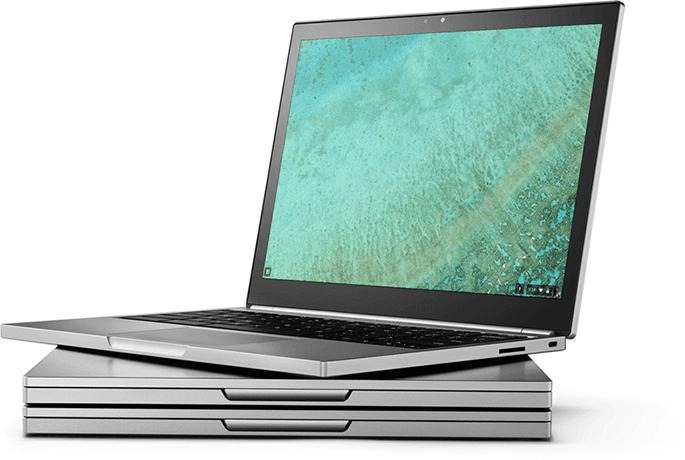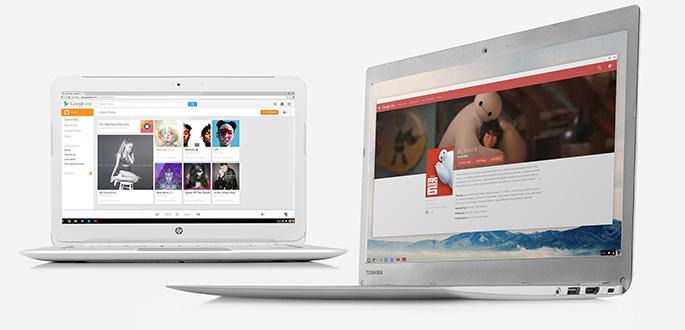You Don't Need A $1,000 Chromebook
Yesterday, HP announced the Chromebook 13, a laptop that runs Google's basic ChromeOS. Chromebooks have grown in popularity over the last few years because they can be lightweight, feature good battery life, and won't cost you as much as a similar device that runs Windows of OS X. Which makes me wonder why we're seeing Chromebooks that cost over $1,000.
So what is a Chromebook good for, anyway? Since it runs ChromeOS, you're going to be limited to the functions that you can perform using the Chrome browser, essentially. This means web browsing and watching videos are a given. You can also use Google Docs for collaboration, and Google Drive for handling files. There are plenty of web-based apps, as well. But again, you're still ultimately relying on a web browser for everything.
When considering what laptop to buy, it's pretty easy to determine if a Chromebook is right for you. Do you do anything that requires a program other than your browser? If you do, then you're probably not going to have a good time with a Chromebook. But if all you care about is browsing and doing some (very) light work, and you're on a budget, then sure, a Chromebook is a perfect fit.
Let's take a look at the Chromebook 13. Now I'm not picking on HP because I have anything against them, specifically. They just happened to be the most recent company to release an expensive Chromebook. Google's own Chromebook Pixel is another offender in this category.

First up is the screen. In maxed-out version of the Chromebook 13, you get a 13.3" QHD+ (3200 x 1800) screen. That sounds like a very nice screen, but I have to wonder what you would be doing in a web browser that really takes advantage of that, especially on a 13" screen. Most of the reasons why I would opt for such a high resolution screen are things like editing photos, or doing other things that require a lot of space. But if you're just staring at websites, you're going to have to scale the text to be legible on a screen that small. Sure, it might look a little sharper, but you're still not taking full advantage of the screen.
Next up is the 16GB of RAM. Sure, Chrome can get memory hungry at times. But 16GB is honestly overkill for a device that's just going to be running a web browser. 8GB is still plenty on most computers running a full OS that actually take advantage of larger amounts of RAM. I suppose this is just future-proofing the system, but it'll be quite some time before Chrome becomes so bloated that it needs to chew through that much memory.
The CPU is a 3.1GHz Core M, which again, is overkill. You're not going to be doing anything that really utilizes the CPU to its fullest. Once again, you're still running a web browser.
The SSD that HP is shipping with the top-end version of the Chromebook 13 is a whopping 32GB. This is the only component which isn't necessarily overkill. Granted, you probably won't be storing lots of stuff on this machine, as you can't really do much with those files. However, if you're on vacation and you want to dump your camera's memory card, it's nice to know that there would be enough space to do so.

I'll never complain about too much battery life. And this machine is said to deliver around 11 hours of activity before it needs a charge. This is mainly because ChromeOS is so light that it doesn't need to use a lot of power. Which only further proves the point that you're not going to be utilizing the maxed-out hardware of this $1000+ laptop.
Now that we've gone over the specs of the high-end side, let me remind you what the entry-level version gets you. It'll come with a 1.5GHz Core M, 4GB of RAM, and a 1080p screen. For a Chromebook, that's just fine. And starting at $499, that's still a bit high for a Chromebook. But you're also getting a sleek metal finish, instead of cheaper plastic that you'll find on less expensive devices.
Honestly, the specs of the maxed-out Chromebook 13 are great, for a Windows or Mac laptop. If you added a larger SSD, you'd have a nice ultrabook that can do just about anything you need, save for video editing and gaming. It's just too hard to justify spending that kind of money when you could buy something that could do so much more, for the same price. It's like buying a speedboat and putting it in a pond. There's nothing wrong with the boat, but all of those fancy features are going to go to waste.
